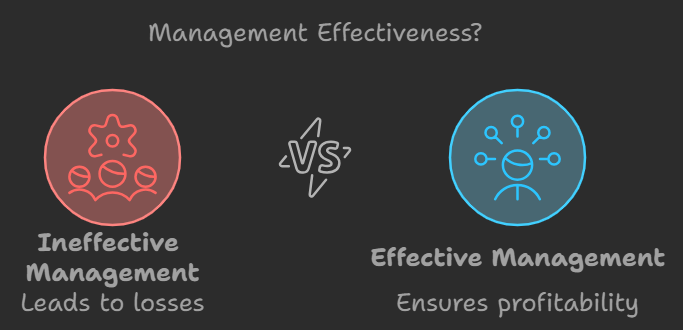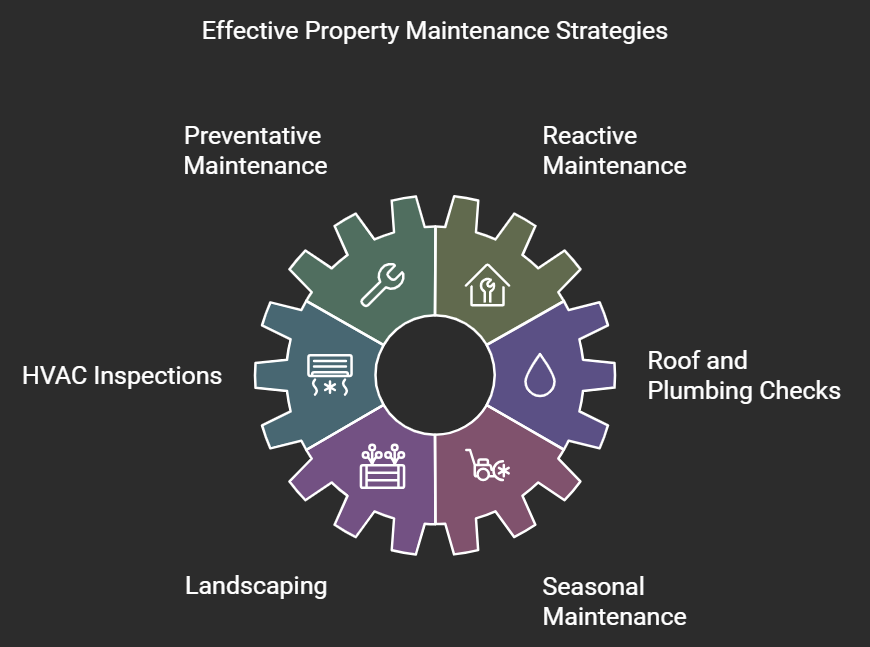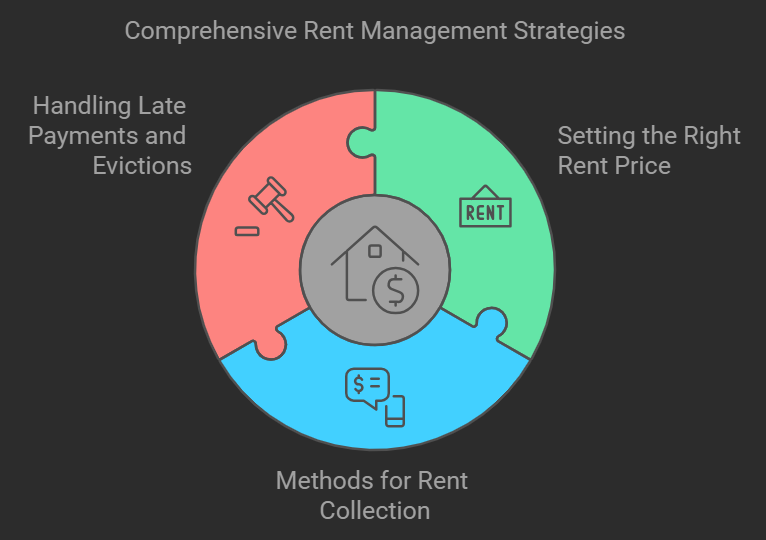Rental Property Management: From Tenant Screening to Passive Income

Managing a rental property can be highly rewarding, offering a steady income stream and long-term wealth building. However, effective property management requires a well-planned strategy to reduce risks and maximize returns. In this guide, we’ll take you through the essential steps of rental property management, from tenant screening to generating passive income.
Understanding the Basics of Rental Property Management

What is Rental Property Management?
Rental property management involves overseeing the daily operations of a real estate rental property. This includes everything from finding tenants and handling maintenance requests to collecting rent and ensuring legal compliance. To deepen your understanding of how rental properties fit into the broader picture of real estate investing, explore our Real Estate Investing Strategies guide.
Why Effective Management Matters
Efficient property management can mean the difference between a highly profitable investment and one that loses money. Proper management helps maintain tenant satisfaction, preserve property value, and ensure consistent rental income. “Building and Scaling Your Real Estate Portfolio”.
Tenant Screening: The Foundation of a Profitable Rental

Why Tenant Screening is Critical
Selecting the right tenant is one of the most important aspects of property management. Good tenants pay on time, take care of the property, and minimize potential problems. To learn more about how tenant selection can impact your investment strategy, check out our insights on Fix and Flip vs. Buy and Hold: Comparing Popular Investment Strategies.
Steps to Screen Tenants Effectively
- Credit Checks: Review credit history to ensure tenants can manage financial obligations.
- Background Checks: Check for criminal records and eviction history to identify potential risks.
- Income Verification: Ensure that the tenant’s income is sufficient to cover rent and other living expenses.
- References: Speak to previous landlords to assess the tenant’s rental history.
Property Maintenance: Keeping Your Investment in Good Condition

Preventative vs. Reactive Maintenance
Preventative maintenance is crucial to avoiding costly repairs and maintaining the property’s value. Reactive maintenance involves fixing issues as they arise, but a proactive approach is always better. “Risk Management and Insurance in Real Estate Investing”
Common Maintenance Tasks
- Regular HVAC inspections
- Roof and plumbing checks
- Landscaping and exterior upkeep
- Seasonal maintenance (snow removal, gutter cleaning)
Hiring a Property Manager vs. DIY Maintenance
While some landlords handle maintenance themselves, hiring a professional property manager can save time and reduce stress, especially for larger portfolios. Understanding the implications of property management can be crucial, particularly when considering different investment types. Explore more in our article on Residential vs. Commercial Real Estate Investing: Choosing Your Path.
Rent Collection and Financial Management
Setting the Right Rent Price
Methods for Rent Collection
- Online Payment Platforms: Convenient and secure for both landlords and tenants.
- Traditional Payment Methods: Checks or cash, though less common today.
Handling Late Payments and Evictions
Late payments can disrupt your cash flow, so it’s important to have clear policies in place. If a tenant consistently fails to pay, you may need to consider legal eviction proceedings.
Explore our guide on Efficient Rent Collection Strategies to avoid common pitfalls.
“Efficient Rent Collection Strategies”
Legal Compliance and Tenant Rights
Understanding Landlord-Tenant Laws
Each region has specific laws governing rental agreements, tenant rights, and eviction procedures. Ensuring compliance can protect you from legal disputes.
Key Documents Every Landlord Should Have
- Lease Agreement
- Move-In/Move-Out Inspection Forms
- Tenant Notices (late payments, eviction notices, etc.)
Learn more about staying compliant in our Legal Compliance Guide for Rental Property Owners.
“Legal Compliance Guide for Rental Property Owners”
Maximizing Passive Income: Turning Your Rental into a Profitable Business
What is Passive Income in Real Estate?
Passive income refers to earnings generated with minimal active involvement. In rental property management, this can be achieved by automating tasks and delegating responsibilities. “Real Estate for Financial Independence: Creating Sustainable Wealth”
Strategies to Maximize Passive Income
- Hire a Property Management Company: Delegate day-to-day tasks while collecting passive rental income.
- Invest in Technology: Use property management software to streamline tenant communications, rent collection, and maintenance requests.
- Expand Your Portfolio: As you acquire more rental properties, your potential for passive income increases, especially if managed efficiently.
Conclusion: From Active Management to True Passive Income
Managing a rental property is a balancing act between hands-on involvement and automated systems. By effectively screening tenants, maintaining the property, staying compliant with laws, and automating processes, you can reduce stress and maximize returns, ultimately turning your rental property into a source of steady passive income. This journey begins with understanding essential real estate investing strategies to ensure your success.
To further enhance your skills in property management and real estate investing, consider the resources offered by Trust Your Talent Academy. We’re committed to providing you with the knowledge and tools needed to thrive in the dynamic world of real estate.
Ready to take your real estate investing skills to the next level? Explore our comprehensive courses tailored to investors at all stages, from beginners to seasoned professionals. For personalized guidance, consider scheduling a strategy session with one of our expert mentors. And don’t miss our upcoming events, where you can network with fellow investors and learn from industry leaders.
FAQs: Rental Property Management
A combination of credit checks, background checks, income verification, and reference checks ensures you find reliable tenants.
Online payment platforms like PayPal or dedicated property management software can simplify rent collection and reduce late payments.
If you own multiple properties or prefer a hands-off approach, hiring a property manager can help you focus on passive income generation while ensuring your properties are well-managed.
Regular property maintenance, strategic rent pricing, and investing in technology can increase tenant satisfaction, reduce vacancies, and improve income potential.





